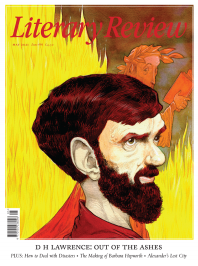Peter Singer
Doing the Donkey Work
This month will see the release of my new edition of The Golden Ass, a novel I had not even read seven years ago and knew little about. It was one of those many books with titles that are vaguely familiar, but if you had asked me who wrote it, when it was written or what it is about, I would not have been able to tell you.
It all began when I received an email from the novelist Richard Zimler in which he mentioned that he had been reading The Golden Ass and enjoying not only its literary qualities but also the manner in which its author had created a work of fiction ‘that places the idea of animal rights in the reader’s head and heart in a very appealing and strong way’. That got my attention. I looked up the work and found that Apuleius, its author, was born during the reign of Hadrian in what is now Algeria but was then part of the Roman Empire. This was a twofold surprise. I hadn’t known that the Greeks or Romans wrote novels, let alone that any had survived. If this was the oldest surviving novel, or even just one of the earliest, why didn’t I know about it? Why, and this is even more extraordinary, didn’t Google know about it? (You don’t believe me? Then put ‘What is the earliest novel?’ into Google. I always get the 11th-century The Tale of Genji.)
The second surprise was that a Roman novel should raise the idea of animal rights – or, if that is too great an anachronism, at least present an animal’s perspective on the way we treat animals. When we turn our minds to the Romans and animals, we will most likely think of the crowds in the Colosseum cheering as exotic animals, brought in from the distant provinces of the empire, fought it out with gladiators or other animals. There were kinder figures in Roman

Sign Up to our newsletter
Receive free articles, highlights from the archive, news, details of prizes, and much more.@Lit_Review
Follow Literary Review on Twitter
Twitter Feed
In 1524, hundreds of thousands of peasants across Germany took up arms against their social superiors.
Peter Marshall investigates the causes and consequences of the German Peasants’ War, the largest uprising in Europe before the French Revolution.
Peter Marshall - Down with the Ox Tax!
Peter Marshall: Down with the Ox Tax! - Summer of Fire and Blood: The German Peasants’ War by Lyndal Roper
literaryreview.co.uk
The Soviet double agent Oleg Gordievsky, who died yesterday, reviewed many books on Russia & spying for our pages. As he lived under threat of assassination, books had to be sent to him under ever-changing pseudonyms. Here are a selection of his pieces:
Literary Review - For People Who Devour Books
Book reviews by Oleg Gordievsky
literaryreview.co.uk
The Soviet Union might seem the last place that the art duo Gilbert & George would achieve success. Yet as the communist regime collapsed, that’s precisely what happened.
@StephenSmithWDS wonders how two East End gadflies infiltrated the Eastern Bloc.
Stephen Smith - From Russia with Lucre
Stephen Smith: From Russia with Lucre - Gilbert & George and the Communists by James Birch
literaryreview.co.uk